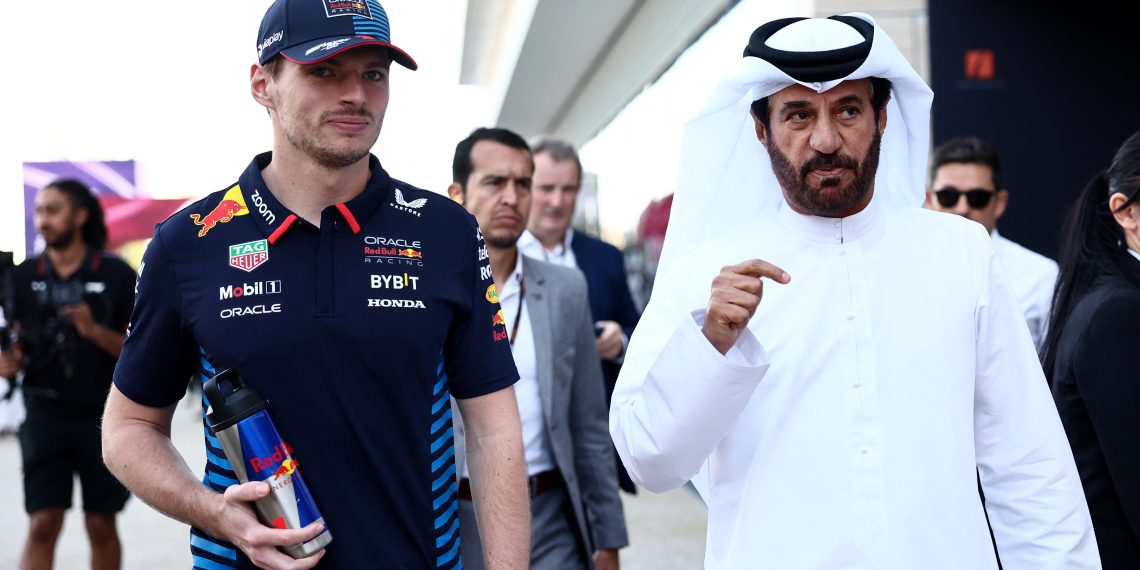FIA President Mohammed Ben Sulayem has reignited tensions with the British media, accusing them of bias against Gulf Arab countries and highlighting their selective criticism of Formula 1’s association with nations that have controversial human rights records. Speaking at the 2025 Dakar Rally, the Emirati president defended the Middle Eastern countries hosting F1 races and pointed to perceived hypocrisy in the sport’s financial and ethical dealings.
“Unfair Treatment” and Gulf Criticism
Ben Sulayem took aim at the British media, accusing them of perpetuating a narrative against Saudi Arabia, Bahrain, Qatar, and his home country, the UAE—all of which host F1 races.
“Three years of critics against me. Do I care? Was I elected to listen to the media? No. I like the good media, the positive media, and maybe I make a mistake, and you can come and criticize me in an objective way,” he said.
His comments underline a growing frustration over the Western media’s scrutiny of F1’s ties with Gulf nations, while events like the Qatar Airways British Grand Prix continue to benefit from Gulf sponsorship without facing the same level of condemnation.
A Longstanding Debate in Formula 1
F1 has often faced backlash for holding races in countries criticized for their human rights records. Drivers like Lewis Hamilton and Sebastian Vettel have spoken out in the past, particularly about Saudi Arabia, only for the controversy to subside as the financial gains outweighed ethical debates.
Ben Sulayem highlighted what he sees as a double standard:
“You look at some of the British media, and they go against Saudi Arabia or me. But one thing I would say, go on and see the British Grand Prix. Is it the British Grand Prix? No, it is the Qatar Airways British Grand Prix. Please, you remove the budget, you remove the money.”
Bias in Media Coverage?
The FIA president’s comments also touch on an issue many fans and insiders have observed—perceived bias in F1 media coverage. Drivers like Max Verstappen, Fernando Alonso, and even Vettel in his prime have faced harsher scrutiny compared to their British counterparts.
Adrian Newey, Red Bull’s chief technical officer, has publicly stated that Verstappen has been treated unfairly by the media, while Alonso has long expressed frustration over unfavorable portrayals.
A recent example surfaced during the 2024 Abu Dhabi Grand Prix, where commentator David Coulthard questioned a penalty given to Verstappen while accepting an identical one handed to Valtteri Bottas—notably, a non-British driver not competing directly against Lando Norris or Hamilton.
Ben Sulayem Under Fire
Ben Sulayem’s tenure as FIA president has been contentious. From his perceived backtracking on the Andretti F1 project to high-profile staff departures, his leadership has faced significant scrutiny. He has also clashed with drivers, including penalizing Verstappen for using foul language during a press conference. This sparked a backlash from drivers, who questioned how the FIA allocates funds from fines.
The president dismissed their concerns, stating, “It’s none of their business.”
Governance Concerns and the Future of the FIA
Recent changes to FIA statutes have raised questions about governance within the F1 governing body, adding to the tensions surrounding Ben Sulayem’s presidency. His combative stance with both media and drivers has left him increasingly isolated, though he remains steadfast in his approach.
The Larger Implications
Ben Sulayem’s comments at the Dakar Rally highlight a growing rift between the FIA, media, and drivers. While he defends the contributions of Gulf nations to F1, critics argue that his leadership style and perceived defensiveness risk alienating key stakeholders.
The debate over F1’s ethics and its relationship with Gulf nations is unlikely to fade, particularly as financial incentives continue to drive the sport’s expansion into controversial markets. Whether Ben Sulayem can navigate these challenges or becomes a polarizing figure in the FIA’s history remains to be seen.










